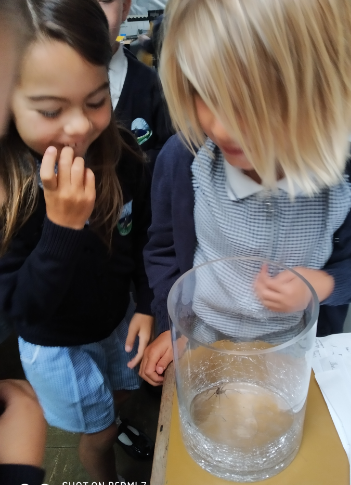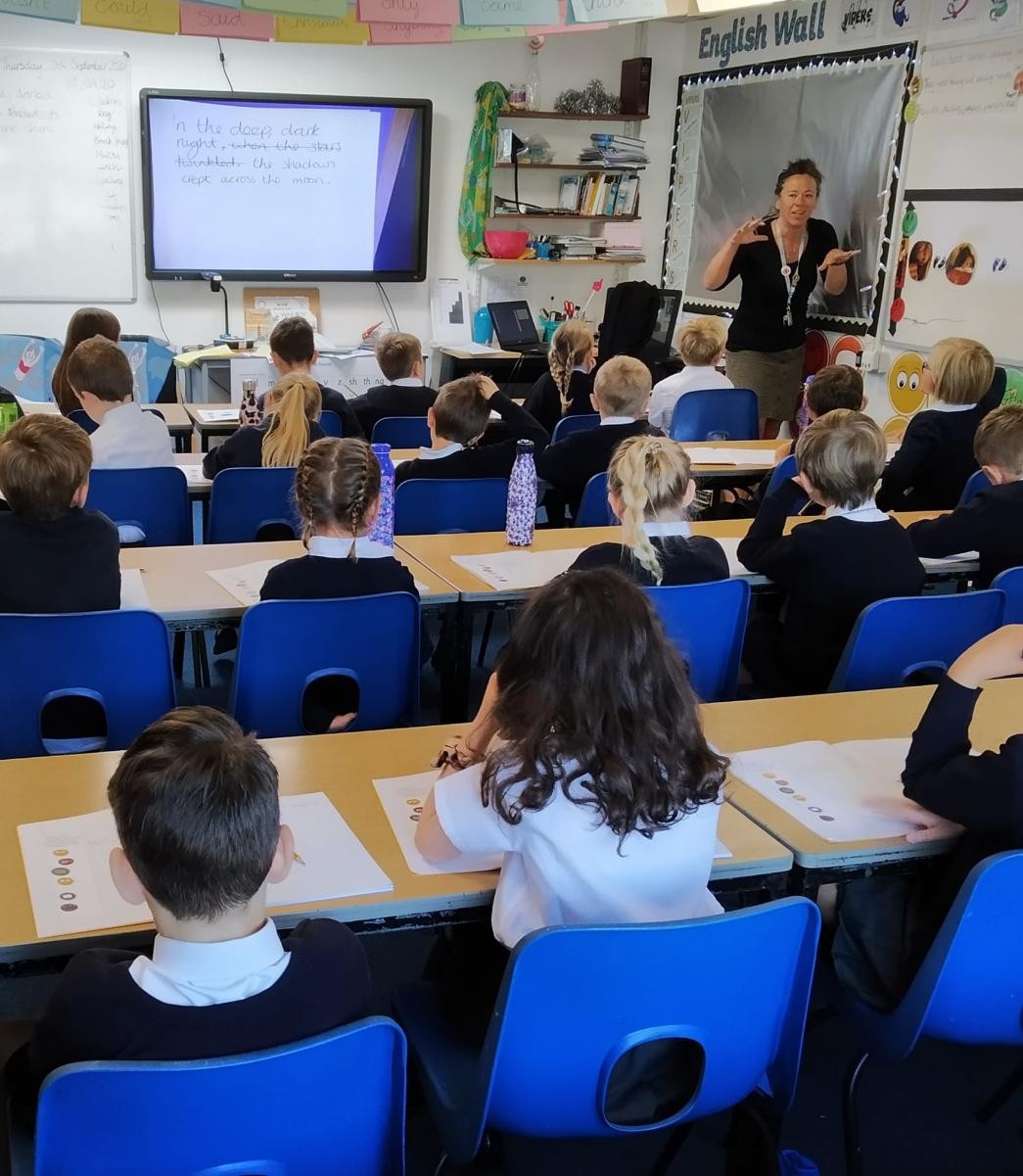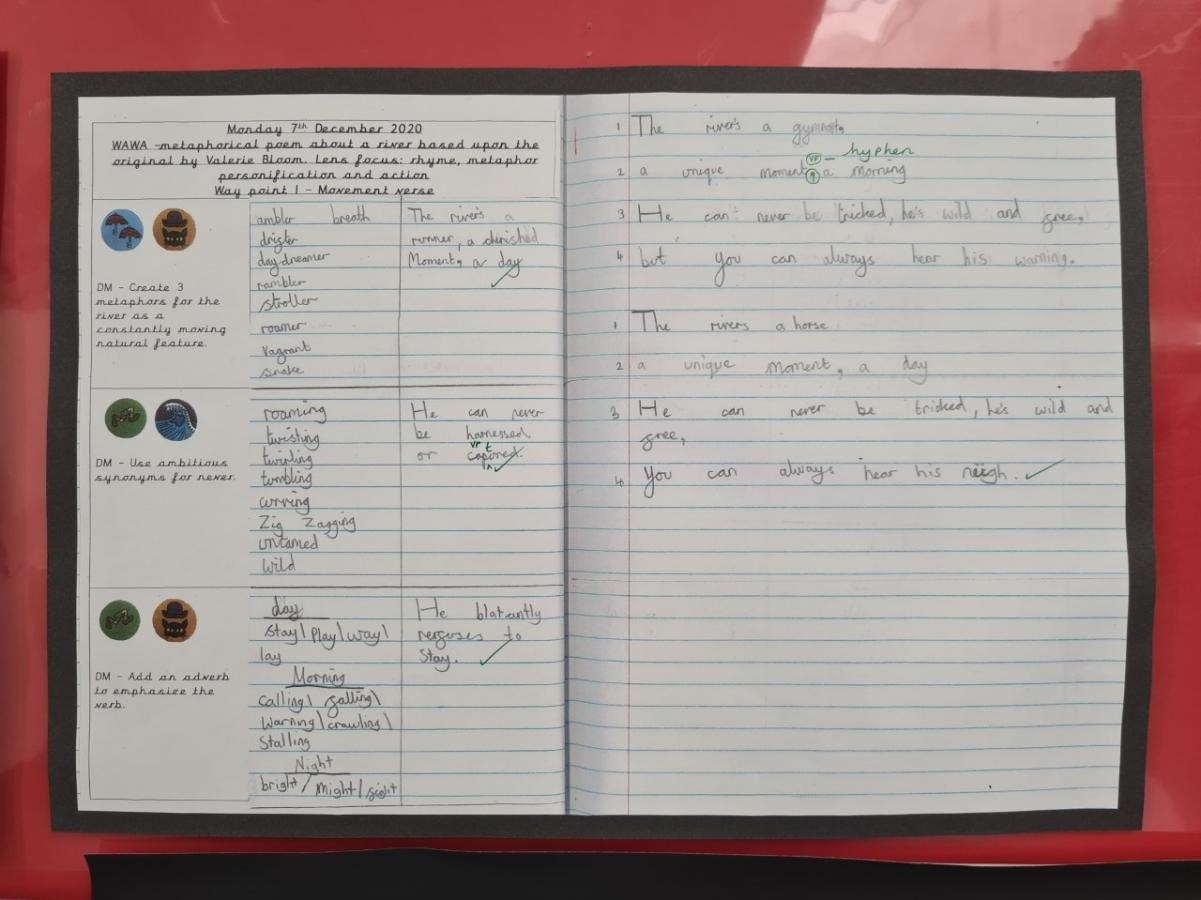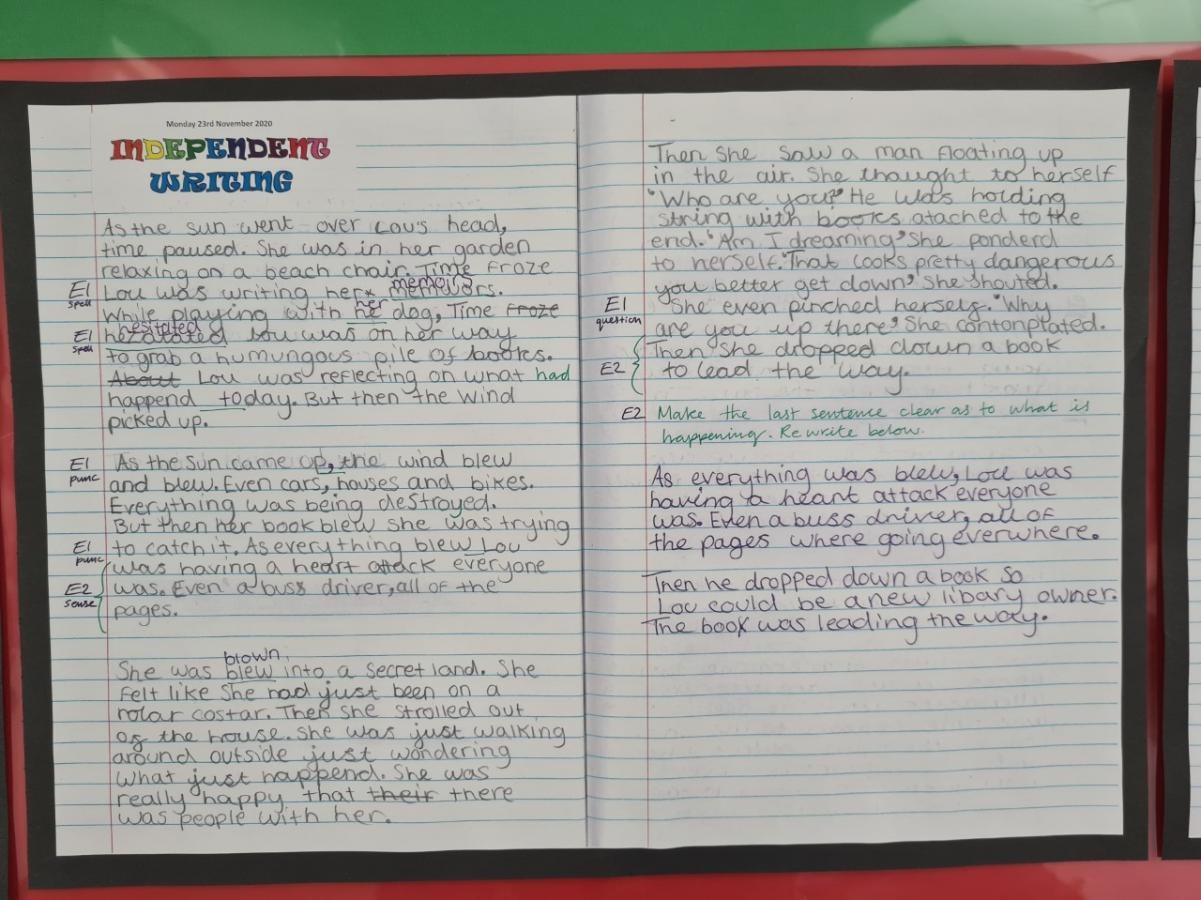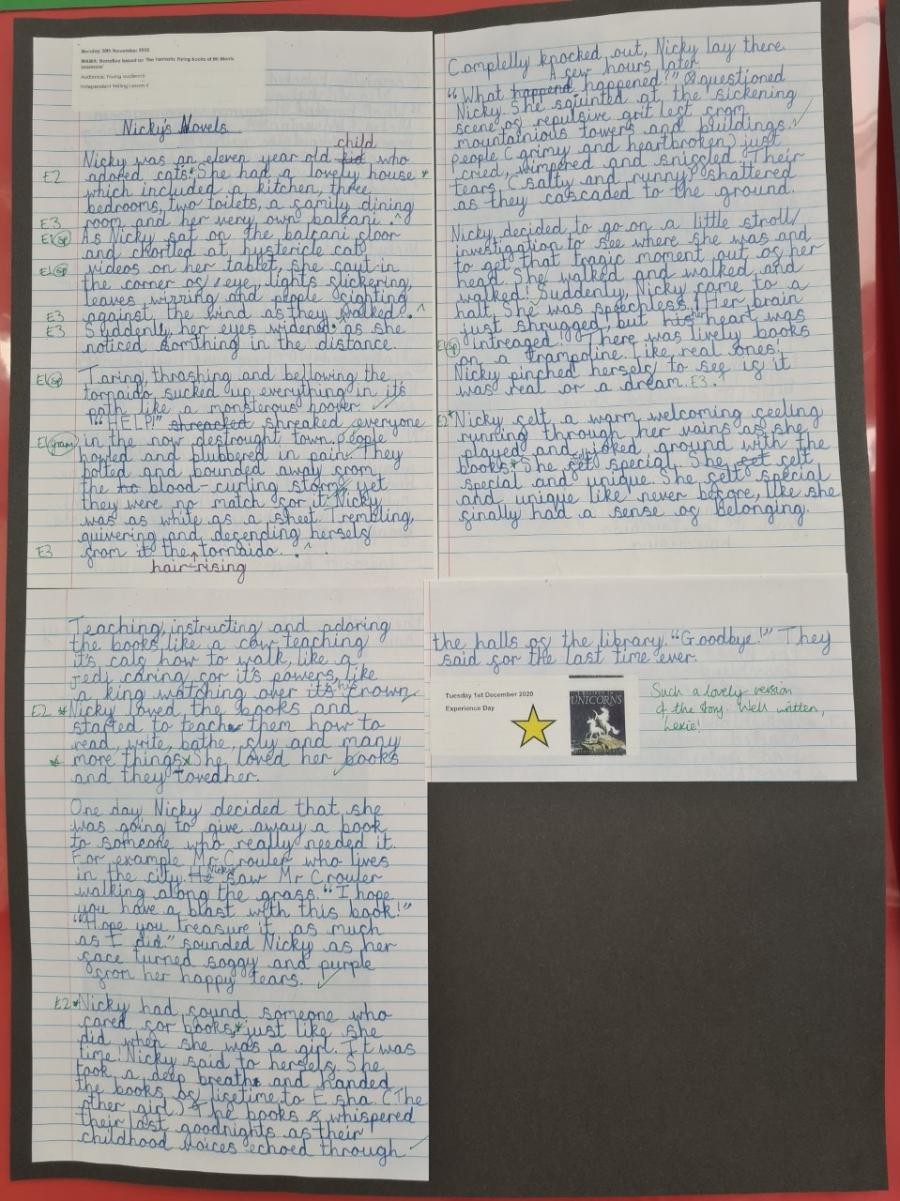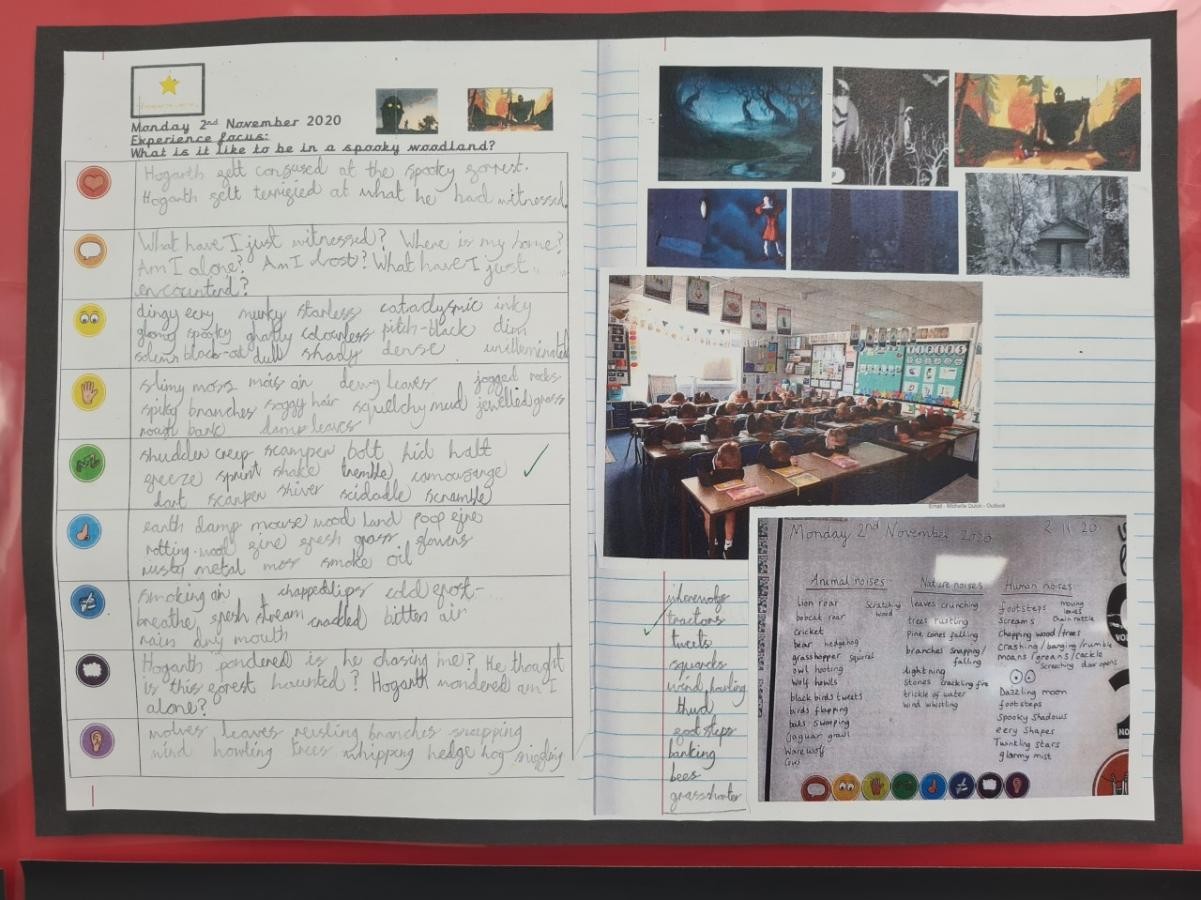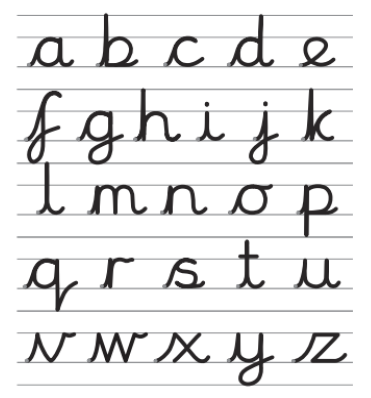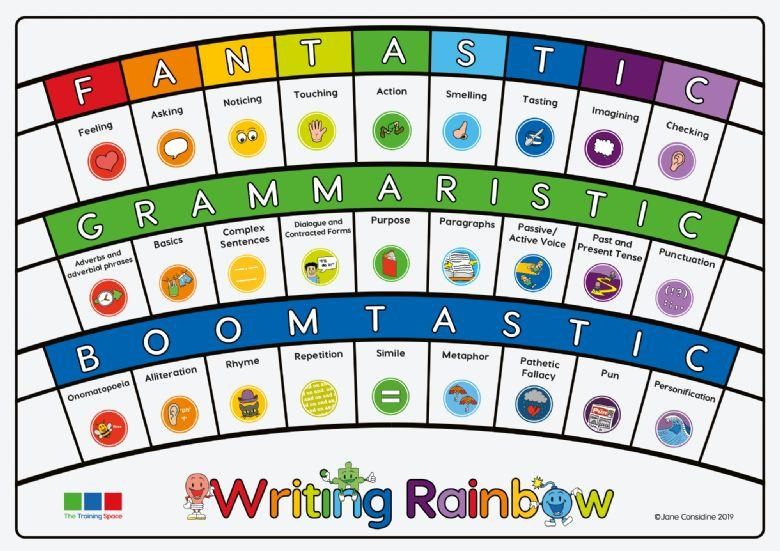In order to expose children to a variety of genres which help to utilise and embed the writing skills, teachers use the four key writing purposes and a range of enquiry questions to plan, structure and teach their English lessons. This journey is designed to show progress, teach the pertinent year group objectives, apply and consolidate these skills and develop vocabulary. Writing is taught through the use of a quality text, which exposes the children to inference, high-level vocabulary, a range of punctuation and characterisation. Each text is purposefully selected in order to promote a love of reading, engagement and high quality writing from each child.
(Please see our Purpose Progression document and Writing TLP document for further information about how we structure writing at St Uny CE Academy)
As all aspects of English are an integral part of the curriculum, cross curricular writing standards will also improve and skills taught in the English lesson will be transferred into other subjects; this shows consolidation of skills and a deeper understanding of how and when to use specific punctuation and grammar objectives. We hope that as children move on from St Uny CE Academy, their creativity, passion for English and high aspirations travel with them and continue to grow and develop as they do.

